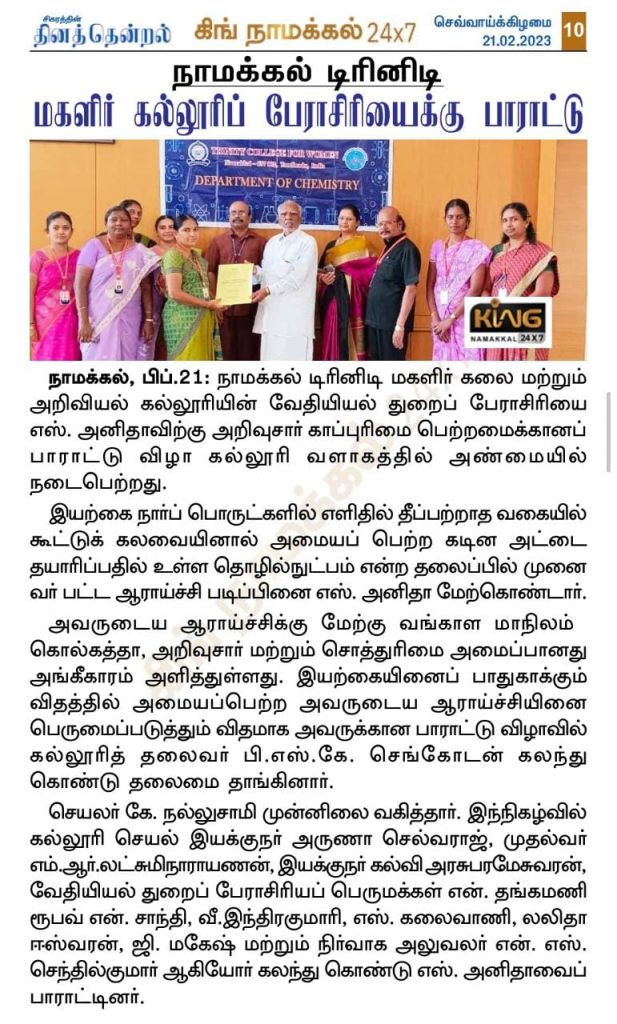Best wishes to Dr. S. ANIDHA, AP IN CHEMISTRY
A flame –retardant natural fiber composite board and method thereof
Intellectual Property Rights (IPR) refers to the legal rights given to the inventor or creator to protect his/her invention or creation for a certain period of time. IPR have been defined as ideas, inventions and creative expressions based on which there is a public willingness to bestow the status of property. IPR provides certain exclusive rights to the inventors or creators of that property, in order to enable them to reap commercial benefits from their creative efforts or reputation. Patent is recognition for an invention, which satisfies the criteria of global novelty, non-obviousness and industrial application. IPR is a prerequisite for better identification, planning, commercialization, rendering and thereby protection of invention or creativity.
Each industry should evolve its own IPR policies, management style, strategies for depending on its area of specialty. Dr. S. Anidha Assistant Professor, Department of Chemistry, Trinity College for Women, Namakkal was awarded the Patent from Publication of the Patent office, New Delhi. of that research study.
Title of the invention is
“A flame –retardant natural fiber composite board and method thereof.”
The Patent office journal number 49/2022 dated 09/12/2022 collaborated with Dr. Arpan Kumar Mondal, Assistant Professor, Department of Mechanical Engineering, National Institute of Technical Teachers’ Training and Research Kolkata, FC Block, Sector III, Bidhannagar, Kolkata, West Bengal — 700106.
Abstract of her research:-
A flame-retardant natural fiber composite board and its preparation technique was an invention for delivering an ecologically friendly composite board. In particular, by including a flax fabric as well as a thermoplastic starch composite with cornstarch as a main component, the flame –retardant natural fiber composite is physically and chemically more durable composite fabric. The ability to manufacture a composite fabric with outstanding performance at low production costs is made feasible by the easy and affordable availability of maize starch.
The studies on the Composite materials constitute a significant proportion of the engineered materials that promote various applications ranging from everyday products. Bio composite materials are very attractive due to the fact that a small amount of composite structure can lead to great improvement in mechanical and thermal properties. The green composite is developed by using partly bio-degradable composites which are barely outlined to support the properties of their compositions.
Dr. S. Anidha, Assistant Professor in Chemistry, Trinity College for Women, Namakkal is congratulated by Mr. P.K. Sengodan, Chairman, Er. K. Nallusamy, Secretary, Mrs. Aruna Selvaraj, Executive Director, Dr M.R. Lakshiminarayanan, Principal, Dr. Arasuparameswaran, Director – Academic, The faculty members of Chemistry of our College Mrs. N. Thangamani, Mrs. V. Indirakumari, Dr. N. Santhi, Dr. S. Kalaivani, Dr. Lalitha Easwaran . Mrs. G. Mahesh and Mr. N.S. Senthilkumar, Administrative Officer.

